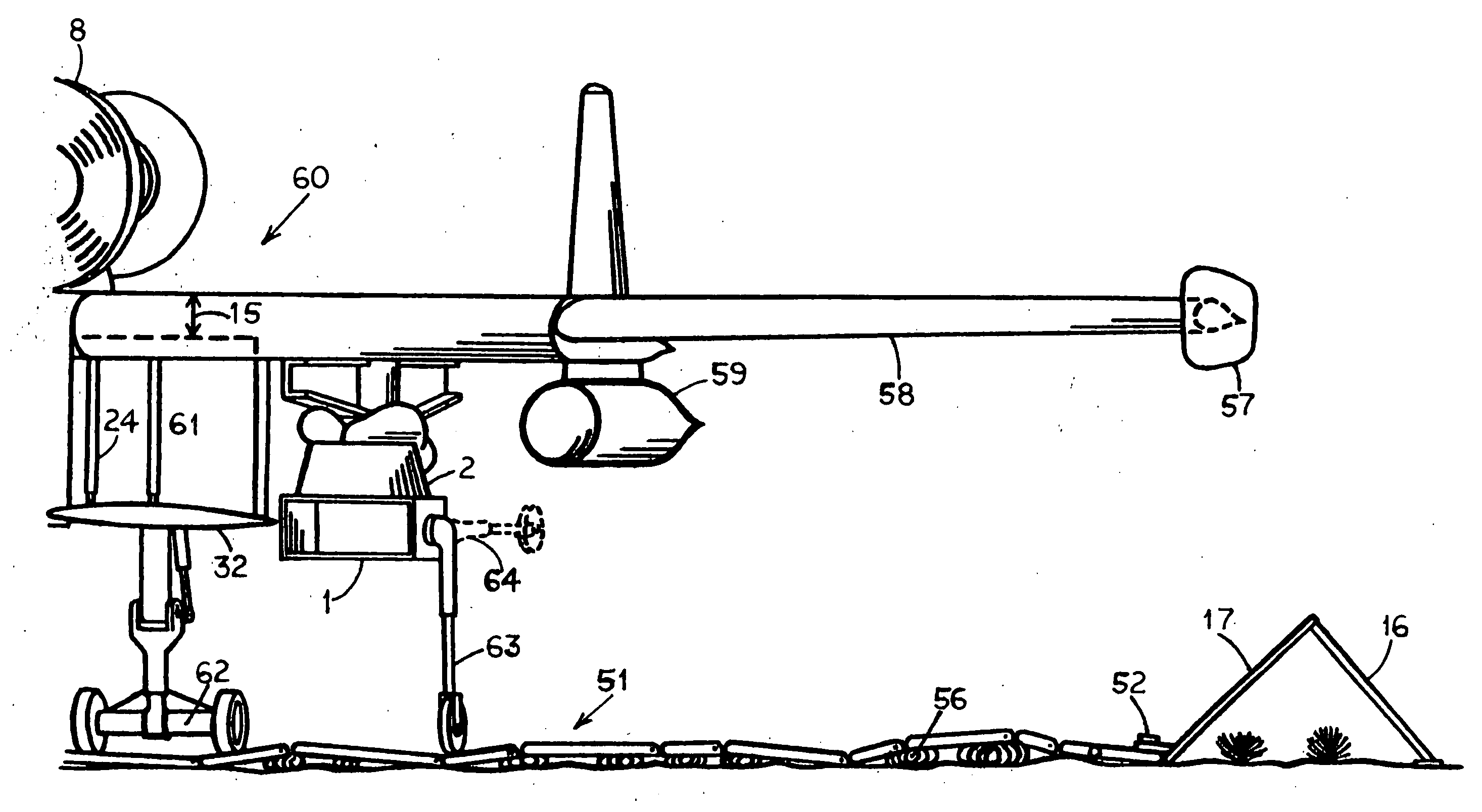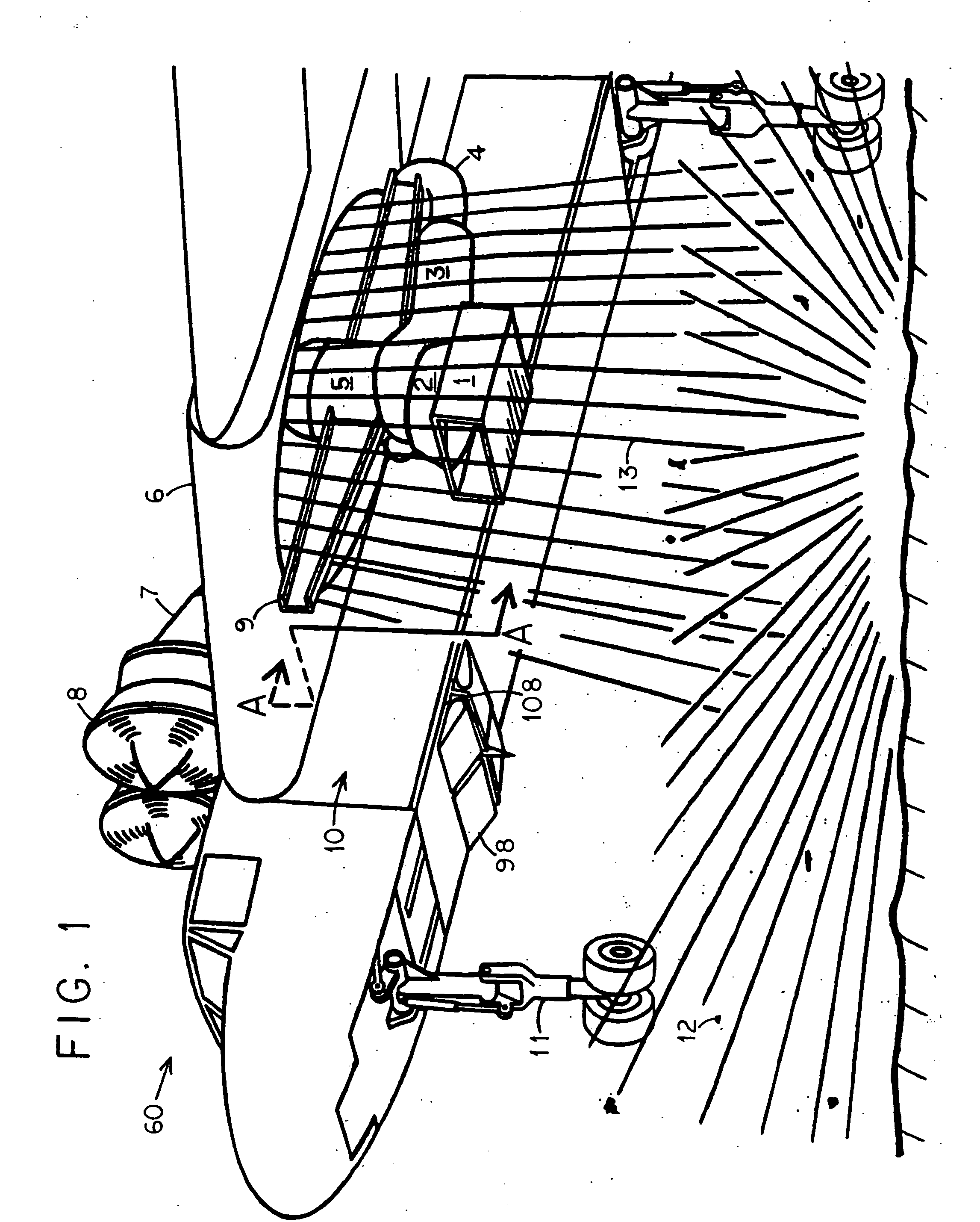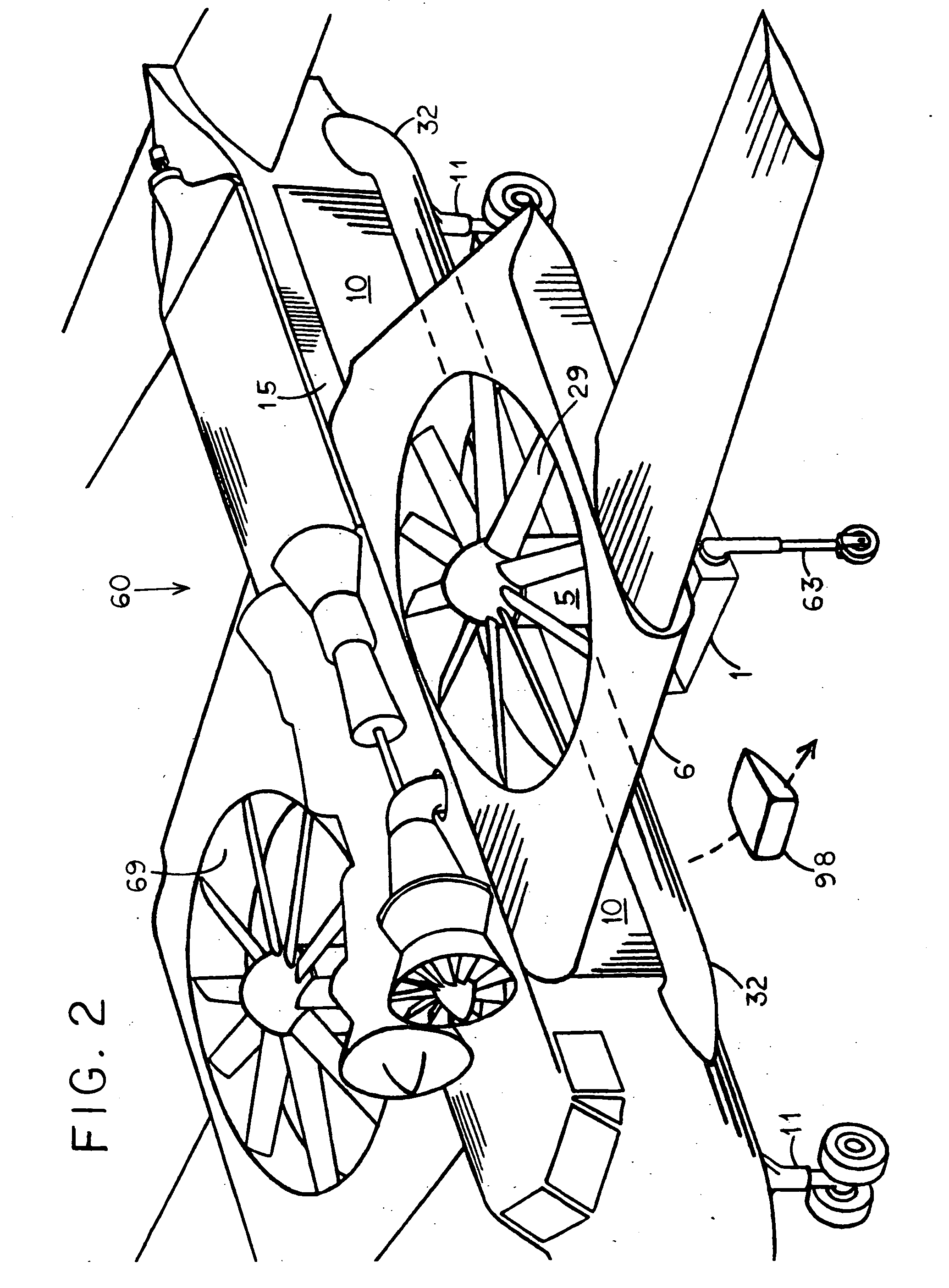Fly-in landing pad for lift-fan aircraft
a technology for liftfan aircraft and landing pads, which is applied in the direction of portable landing pads, noise reduction installations, constructions, etc., can solve problems such as damage or injury, and achieve the effects of facilitating rolling and unrolling, increasing widths, and downdraft air velocity
- Summary
- Abstract
- Description
- Claims
- Application Information
AI Technical Summary
Benefits of technology
Problems solved by technology
Method used
Image
Examples
Embodiment Construction
[0030]Vertical Take-Off and Landing (“VTOL”) airplanes are known. The V-22 “Osprey” tilt-rotor airplane is the latest example. The present invention concerns VTOL airplanes bf the lift-fan type. These have smaller rotors which turn quite fast. The air downflow 13 in FIG. 1 which creates lift is faster too. When lift-fan airplanes land on ordinary ground, they kick up dirt or pebbles 12 which can attain high speeds. Damage to property or injury to people can result. The invention aims to reduce that hazard.
[0031]In FIG. 1, lift-fan airplane 60 is medium-sized, with a wingspan of 90 feet and able to carry a payload of 10,000 lbs. Airplane 60 is a cargo plane. Its cargo load 10 is a rolled-up landing pad for subsequent lift-fan airplanes to land on.
[0032]The best-known VTOL aircraft are helicopters, which have large rotors. The UH-60A “Blackhawk” can carry 16 people and its rotor diameter is 53½ feet. Large, slow-turning rotors are most efficient to create vertical lift. A desire to ac...
PUM
 Login to View More
Login to View More Abstract
Description
Claims
Application Information
 Login to View More
Login to View More - R&D
- Intellectual Property
- Life Sciences
- Materials
- Tech Scout
- Unparalleled Data Quality
- Higher Quality Content
- 60% Fewer Hallucinations
Browse by: Latest US Patents, China's latest patents, Technical Efficacy Thesaurus, Application Domain, Technology Topic, Popular Technical Reports.
© 2025 PatSnap. All rights reserved.Legal|Privacy policy|Modern Slavery Act Transparency Statement|Sitemap|About US| Contact US: help@patsnap.com



